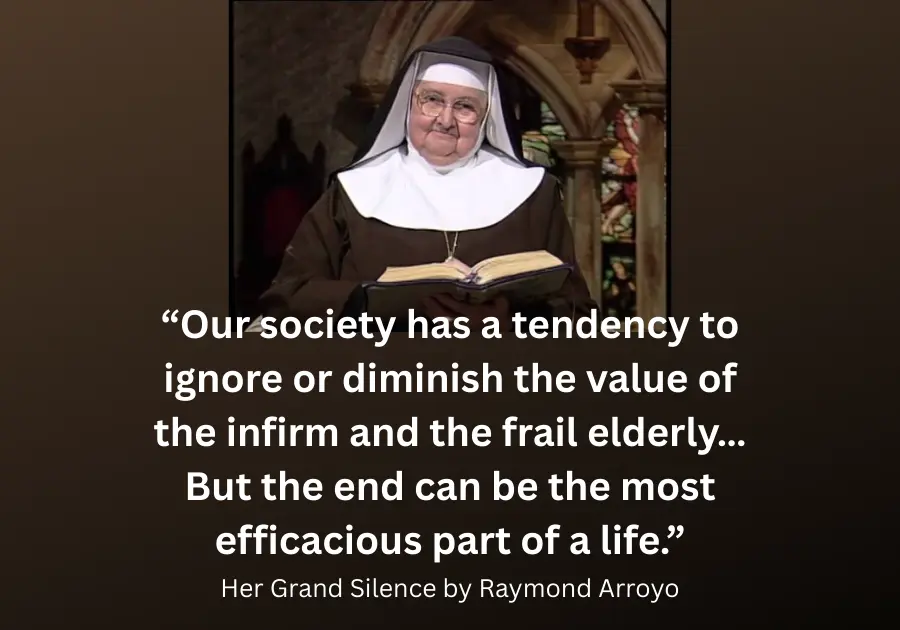
This past weekend, I spent two days with my 93-year-old aunt, Alicia – or Aya as I have always called her. In response to my cousin’s request to care for her to give him a break. Aya is weak and has a hard time walking without assistance. Her memory is fading and she suffers from several ailments.
We did manage, however, to share long talks and reminisce about past moments – sometimes more than once. Over the years, I have learned many details about family history from her, but this time I found many of those details are lost in her mind as I probed for more information. Spending time with her was a blessing as it is likely she may not last long, though she has surprised us many times.
Without prompting her she expressed two regrets: having never married and not having kids. She seemed sad but was comforted that both my cousin Rey and I had been like her sons.
Have you ever thought what your reaction would be if you knew when and how you or someone you love were going to die?
I just read the book “Here One Moment”, by Liane Moriarty, which presents some characters’ answers to that question. Moriarty has written a funny, ambitious, and nuanced story on some of our oldest existential questions. The story combines a thriller with the depth of philosophical drama. What I liked best about it was the existential mystery at its heart—how one fleeting moment can alter the course of multiple lives.
The central theme of the novel revolves around the idea of control—or rather, the illusion of it over our lives. Through masterful story-telling, the author presents how certain people approach dealing with uncertainty.
This theme of control versus acceptance runs throughout the novel, highlighted by Moriarty’s use of symbolism. Another recurring theme is the tension between rationality and emotion. Some use logic, calculation, and science, while others are driven by pure instinct and emotion. The novel explores how these opposing forces collide in times of crisis. Neither approach is entirely right or wrong, but Moriarty suggests that balance and acceptance are key to navigating life’s uncertainties.
Spending time with Aya reminded me of the fragility of life and the book tells of many ways people deal with the uncertainty of it.

CUP's Catholic Take: The Gift of Life
The story of spending time with a 93-year-old aunt, Aya, and the themes of Liane Moriarty’s Here One Moment invite us to reflect on life’s fragility and the question of how we face the unknown. From a Catholic perspective, rooted in the wisdom of the Early Church Fathers and the Baltimore Catechism, we find profound guidance for navigating these existential realities with faith and hope.
The Gift of Life’s Fragility
Aya’s physical weakness and fading memory remind us that life is a precious, fleeting gift from God. The Baltimore Catechism (No. 2, Q. 136) teaches that we are created to know, love, and serve God in this world and to be with Him forever in heaven. Even in frailty, every person—like Aya—bears the image of God (Imago Dei, Genesis 1:27), with infinite dignity. St. Augustine, in his Confessions, reflects on loss and mortality, urging us to find peace in God, who transcends our earthly struggles. Aya’s regrets about not marrying or having children are softened by the love she shares with her “sons,” a beautiful reminder that our worth lies in God’s love and the relationships we nurture.
Control, Acceptance, and God’s Providence
Moriarty’s novel explores the tension between control and acceptance, a theme that resonates with Catholic teaching. The Baltimore Catechism (No. 3, Q. 209) assures us that God’s providence guides all things, calling us to trust in His plan. St. Irenaeus, in Against Heresies, reminds us that God’s wisdom surpasses our own, and Jesus Himself models surrender in His prayer, “Not my will, but yours be done” (Luke 22:42). The novel’s balance between reason and emotion echoes St. Thomas Aquinas, who teaches that emotions when guided by faith and reason, lead us closer to God. Facing life’s uncertainties, Catholics are called to cultivate hope, trusting in God’s mercy.
The Threat of Euthanasia and the Call to Protect Life
Today’s “woke” culture, particularly in places like Canada, promotes euthanasia as a solution to suffering. Canada’s Medical Assistance in Dying (MAID) program, with over 13,000 deaths in 2022 alone, reflects a worldview that prioritizes autonomy over the sanctity of life. The Catechism of the Catholic Church (CCC 2277) firmly rejects euthanasia as a violation of God’s commandment, “Thou shalt not kill.” St. John Chrysostom, in his Homilies on Matthew, praises those who care for the vulnerable, seeing it as Christ-like love. For Catholics, the elderly, like Aya, are not burdens but treasures, deserving care and respect. This makes Advanced Catholic Directives vital. These documents ensure that medical decisions align with Catholic teaching, prioritizing palliative care and natural death over euthanasia. They empower individuals to protect their dignity in healthcare systems increasingly inclined to hasten death.
Living with Catholic Hope
As we reflect on Aya’s story and Moriarty’s novel, we should cherish each moment, preparing ourselves for eternity by staying close to the sacraments and strongly advocate for the sanctity of life. With reason and faith, we can face life’s fragility with the assurance of God’s immense love for us. Let’s honor the Aya’s in our lives by loving them deeply and defending their God-given dignity.
For more on protecting life, visit the Euthanasia Prevention Coalition or explore Advanced Catholic Directives through Catholic Medical Association.
